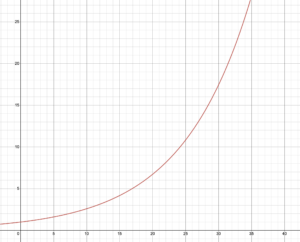The Covid pandemic at its peak was both shocking and devastating. In the UK, the response is being reviewed by a comprehensive enquiry, which is examining evidence relating to the preparedness of the UK government and its actions.
This enquiry is much needed, particularly since the vaccine programme is generally seen as having been a success – touted by the government and backed up by the billionaire press as being world-beating, with a responsiveness supposedly only made possible by the UK’s departure from the EU.
However the reality of the UK’s overall responsiveness to the Covid pandemic, particularly in its initial stages and then throughout 2020, is being found to have been far from adequate, and potentially resulted in the avoidable loss of tens of thousands of lives.
One significant area of interest in the enquiry is the government’s lack of knowledge, or indeed interest, in the maths behind the pandemic, which appears to have caused some exasperation among the leading scientists that were feeding into policy at the time. Educated largely in Classics and PPE (and interested in the economic potential of exploiting the other kind of PPE!), the cabinet seemed unaware of the working of exponentials, which was the key concept behind the elusive ‘R number’. It could be argued that a tendency to think linearly led to inappropriate measures being taken. Furthermore, a misunderstanding of basic percentages led to perception of risk being out by a factor of 100, potentially resulting in disastrously inadequate measures being taken. Perhaps the much-used phrase ‘schoolboy error’ should be revisited. Perhaps also maths education should involve more on probability and risk (but getting away from coins, spinners and dice), alongside the current welcome focus on proportion and rates of change.
